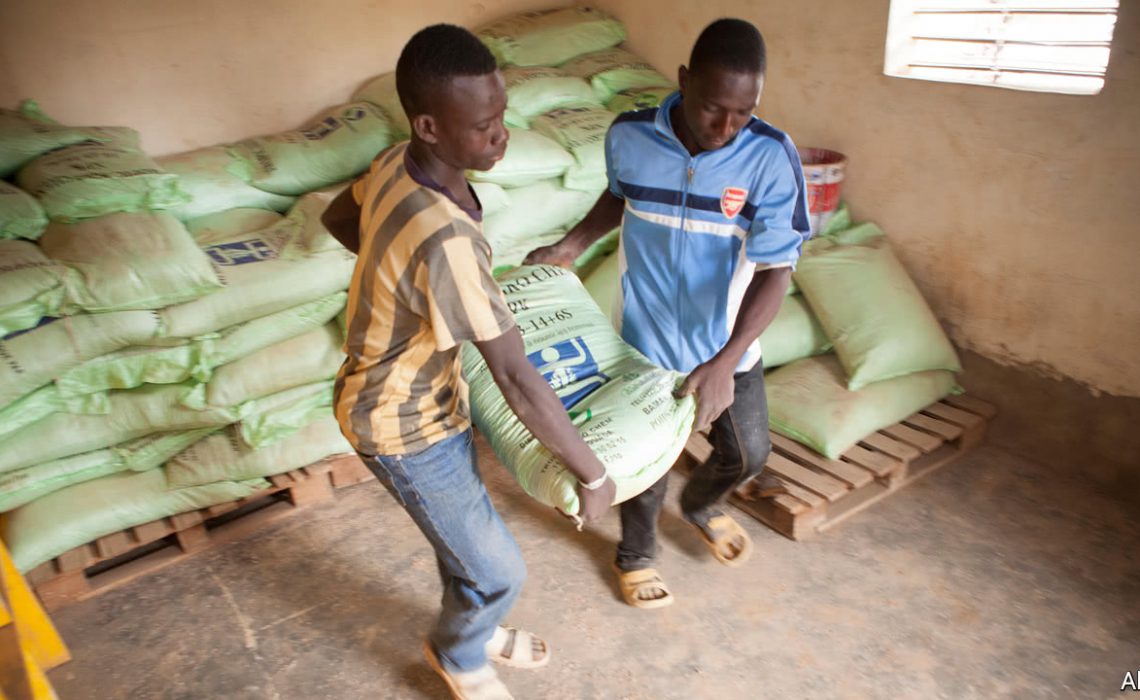
Reduction in fertiliser subsidy unacceptable - Farmer associations protest
Farmer associations in the country have kicked against the government’s decision to reduce the subsidy component on fertilisers under the Planting for Food and Jobs (PFJ) programme.
The Peasant Farmers Association of Ghana (PFAG), Ghana Rice Millers Association (GRMA) and the General Agricultural Workers Union (GAWU) said there was the need for effective consultations to allow for informed decisions on such matters of policy to improve the delivery of subsidies.
The government recently announced its decision to reduce the subsidy component on fertilisers for its flagship programme from 36 per cent in 2021 to 15 per cent for this year.
Per a notification of offer being circulated on the various agriculture social media platforms, government’s approved cost of 50 kg NPK fertiliser is now GH¢320, up from GH¢108 last year.
This indicates a 200 per cent increase, a development the associations describe as unacceptable.
Speaking for the stakeholders, the Head of Programmes and Advocacy of the PFAG, Dr Charles Nyaaba, said farmers were 100 per cent consumers of fertiliser and so were the number one / primary stakeholders to be consulted before a decision on subsidies was taken.
“Government has refused to consult and has not officially communicated to farmers to explain the circumstances for the reduction in subsidies.
“We need to sit together and relook at the prices again to see what can be done,” he said in an interview on February 3, 2022.
Dr Nyaaba said there was the need for effective consultation to allow for informed decisions on such matters of policy to improve the provision of subsidies.
Consequences
Stakeholders have argued that even at the 36 per cent subsidised rate, last year farmers could not get some to buy because of high prices and unavailability.
“Because they are not getting fertilisers to apply, that’s why food prices have gone up that high. So, now if input has increased by 200 per cent, you can imagine what will happen next year. We are so much concerned about the situation,” Dr Nyaaba said.
Explaining further, he said it would require about three bags to cultivate an acre of maize farm, for instance.
This translates into GH¢1,000 for just fertiliser. This is in addition to the cost of ploughing and other inputs which have also increased.
“You realise the cost of production has actually increased more than the reach of the farmer,” he lamented.
Way forward
He said it would augur well for the government to engage in inclusive, regular and meaningful consultation with stakeholders to come out with alternative plans.
“Perhaps, we can decide to take subsidies out and see where we can invest that money. But because government has no regard for farmers it is not willing to have any consultations and every year we face the same challenge,” he said.
“The way forward is for government to admit that it is unable to finance the subsidy on fertiliser and propose alternative financing arrangements,” he said.
He added that all countries that have industrialised through agriculture did so through subsidies and affordable loans, among other things.